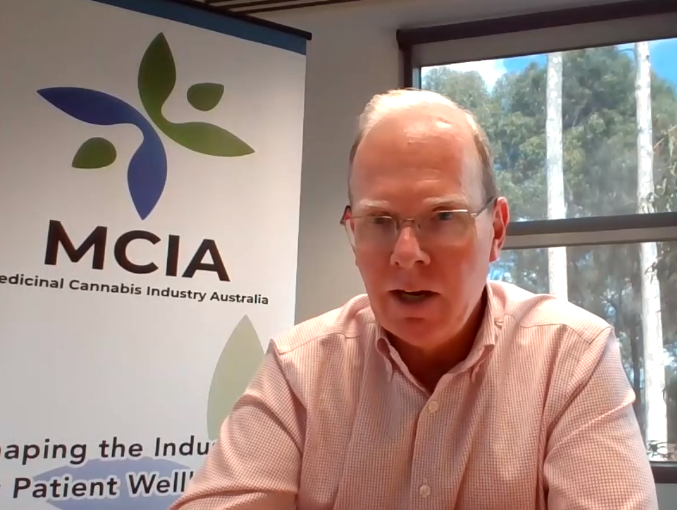New regulations governing the quality of imported medicinal cannabis are on track to commence in March after health officials confirmed overseas firms will soon be held to the same standards as Australian manufacturers.
The plans to require imports to be manufactured in accordance with Good Manufacturing Practice are currently before the World Trade Organisation (WTO) – a necessary step to implement such reforms – with WTO members given until February 20 to comment.
In an update distributed to industry leaders, the Therapeutic Goods Administration (TGA) said it will establish a “reasonable” transition period, likely to be up to 12 months.

All medicine with a “released for supply” date after the end of the transition period will be required to meet the new standards, the regulator said.
But, significantly, the onus will be on sponsors to ensure the new quality standards are being met, with overseas manufacturers seemingly not required to be TGA-accredited.
Instead, importers will need to produce evidence, when requested, that products are compliant.
Reform will extend to extemporaneous compounding, with pharmacists and other medical practitioners required to seek TGA approval under the Special Access Scheme prior to compounding. In addition, new regulations will allow Australian manufacturers to supply to compounders.
Under the new importing rules outlined to the WTO Committee on Technical Barriers to Trade (TBT), “imported medicinal cannabis products will be required to be manufactured on sites with acceptable GMP standards”.
“This measure provides greater certainty on the quality and safety of products available to Australian patients,” documents lodged with the WTO set out. “It extends broadly the same standards to offshore manufacturers currently required of Australian manufacturers.”
While the GMP practices must meet “recognised global standards and/or accreditation”, it stressed sponsors will not have to comply with “a unique Australian manufacturing standard”.
“Sponsors will be able to rely on a manufacturer’s adherence to an internationally accepted GMP standard of a type acceptable to the TGA that may be specific to that manufacturer’s country,” it says.
“The TGA will provide sponsors with clear guidance on the GMP practices and evidence required.”
The regulator added there will be no formal clearance process for imported products, and warned sponsors they must retain evidence of compliance. Observers said it leaves open the possibility that products could reach patients before demonstrating they are compliant.
Despite broad support for reform, the devil is likely to be in the detail of the TGA’s “clear guidance”.
Novachem business development manager Andrew Heath previously argued that “not all GMP is the same“, telling Cannabiz that “not all standards are applied in the same way internationally.”
“There will be no formal clearance process. However, Australian sponsors will be required to retain evidence of compliance.”
Therapeutic Goods Administration
The disparity between local and imported products has long been a source of tension, with local manufacturers and other companies using GMP facilities insisting they are being held to higher standards and being competitively disadvantaged as a result.
A review and consultation process – potential reform to medicinal cannabis manufacturing, labelling and packing requirement – began in December 2020 with almost 50 submissions lodged with the TGA.
The complex nature of the regulations, coupled with the TGA’s preoccupation with Covid, saw the process bogged down for much of 2021, before progress was made towards the end of the year.
Other reforms flowing from the review will see medical practitioners and pharmacists requiring SAS approval to extemporaneously compound medicinal cannabis.
The tightening of the rules will “improve regulatory oversight”, the WTO document states.
Medicinal cannabis manufactured outside of Australia will still be able to be used in extemporaneous compounding.

Meanwhile, TGO 93 regulations will be tightened to include requirements for child-resistant packaging, improved labelling to better identify the active ingredients and clarity on microbiological testing requirements.
“New labelling and packaging requirements will improve the safe presentation of medicinal cannabis products and assist both prescribers and patients,” the TGA said.
Medicinal Cannabis Industry Australia (MCIA) chair Peter Crock welcomed the developments.
He said: “It’s very positive to see these changes have completed the regulatory process and can now be implemented.
“MCIA looks forward to working with the TGA to ensure that implementation is practical, ensures ongoing access for patients and delivers effective compliance for imported products to meet the same standards required of Australian manufacturers.
“The package of changes are good news for patients and for the Australian medicinal cannabis industry, and reflect outcomes that MCIA has actively advocated for.”

Australian Medicinal Cannabis Association (AMCA) company secretary Teresa Nicoletti said the industry body welcomed the changes as a positive step forward.
However, she noted the GMP standards in some countries are not up to the standards that apply to Australian manufacturers and in other jurisdictions such as the EU, Canada, the UK and US, which all uphold stringent regulatory standards similar to Australia’s.
She added: “Many medicinal cannabis products are imported from countries whose regulatory standards are not up to scratch with TGA requirements.
“While the changes are likely to give rise to an improvement in the quality standards of imported products overall, it will not necessarily level the playing field in all cases when compared with the standards that Australian manufacturers are required to comply with.”

